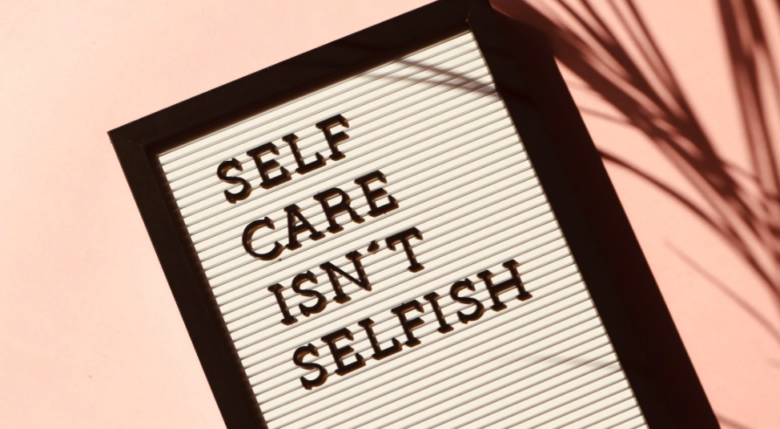Love and wellness are two essential components of a happy and fulfilling life. While many people focus on one or the other, finding the right balance between the two can lead to a more harmonious and satisfying existence. Relationships can be a source of joy and companionship, but they can also be challenging and draining if not approached with intention and care. Self-care, on the other hand, is crucial for maintaining physical and mental health and ensuring that one is equipped to handle life’s ups and downs.
In this article, we will explore the intricate relationship between love and wellness and offer practical tips for navigating both. We will discuss how to establish healthy boundaries in relationships, prioritize self-care, and communicate effectively with partners. We will also delve into the latest research on the connection between love and well-being and provide insights into how to cultivate healthy habits that support both.
Whether you’re single and looking to prioritize your own well-being or in a committed relationship seeking to deepen your connection with your partner, this article has something for you. So, grab a cup of tea, get cozy, and join us on a journey of self-discovery and growth.

Source: wellness.huhs.harvard.edu
Contents
The Connection Between Love and Wellness
Love and relationships have a profound impact on our overall well-being. While healthy relationships can contribute to a sense of happiness and fulfillment, toxic relationships can lead to stress, anxiety, and even physical health problems. The quality of our relationships can affect everything from our sleep patterns to our immune system function, highlighting the need to prioritize what we call “relationship wellness.”
Relationship wellness encompasses not just the absence of negative interactions but also the presence of positive ones. Studies have shown that individuals in healthy relationships have lower levels of cortisol, a hormone associated with stress, and higher levels of oxytocin, the “love hormone” that promotes feelings of closeness and bonding. Furthermore, individuals in healthy relationships have been found to have lower rates of depression and anxiety, better immune system function, and even longer life expectancies.
On the other hand, relationships characterized by conflict, criticism, and negativity can lead to a host of negative health outcomes. For example, studies have shown that individuals in toxic relationships are more likely to experience chronic pain, headaches, and digestive problems. They may also be at a higher risk of developing mental health conditions like depression and anxiety.
Self-Care for Relationship Wellness
The quality of our relationships plays a significant role in our overall well-being. However, it’s important to remember that taking care of ourselves is also crucial to maintaining healthy relationships. In this section, we’ll explore strategies for practicing self-care while in a relationship, including setting boundaries, prioritizing alone time, and nurturing the relationship while also prioritizing personal well-being.
Self-care in the context of a relationship can be challenging, as it often requires striking a delicate balance between nurturing the connection with our partner and taking care of our own needs. However, it’s essential to prioritize our well-being and set boundaries that allow us to take care of ourselves while also nurturing our relationships. Setting boundaries can include everything from saying no to activities that drain us to communicating our needs and limitations with our partners. Prioritizing alone time can also be an essential aspect of self-care, as it allows us to recharge and replenish our energy, making us better partners in the long run.
That being said, it’s important to remember that nurturing the relationship is also crucial to relationship wellness. However, this doesn’t mean sacrificing our own well-being for the sake of the relationship. Instead, it means finding ways to prioritize the relationship while also taking care of ourselves. This can include finding activities we enjoy doing together, engaging in open communication and vulnerability with our partners, and expressing gratitude for one another.

Source: thechelseapsychologyclinic.com
Communication and Conflict Resolution
Effective communication is the foundation of healthy relationships. It allows us to express our needs, desires, and feelings with our partners and fosters a sense of trust and understanding. On the other hand, poor communication can lead to misunderstandings, hurt feelings, and even the breakdown of the relationship.
Healthy communication involves more than just speaking and listening. It requires us to be mindful of our body language, tone, and timing, as well as to approach conversations with empathy and an open mind. When we communicate effectively, we create a safe space for our partners to express themselves, and we work together to find solutions that work for both parties.
Conflict resolution is an essential component of healthy communication, as conflict is an inevitable part of any relationship. However, how we approach conflict can have a significant impact on the relationship’s well-being.
Ultimately, effective communication and conflict resolution promote both individual and relational wellness. They allow us to express ourselves authentically, connect more deeply with our partners, and work together to overcome challenges.
Mindfulness and Intimacy
Mindfulness is the practice of being fully present in the moment, without judgment or distraction. When we approach our relationships with a mindful mindset, we become more attuned to our partners’ needs and feelings, fostering a deeper emotional connection.
Mindfulness can enhance intimacy in a relationship by promoting deeper levels of emotional and physical connection. When we are fully present with our partners, we can tune into their subtle cues and communicate with them on a deeper level. Mindful intimacy involves approaching physical connection with the same level of presence and attentiveness as any other aspect of the relationship. It can involve slowing down, savoring each moment, and tuning into our senses to create a deeper level of intimacy. It can be taken down to any activity and, when done together, the results can be amazing. If you’re feeling curious, here’s a recipe you could try with your partner: riceselect.com/product/riceselect-pearl-couscous.
Furthermore, mindfulness can help us approach our relationships with a sense of curiosity and openness, leading to more profound personal growth and self-awareness.

Source: gottman.com
Maintaining Balance in the Long-Term
One essential strategy for maintaining balance is to stay attuned to potential imbalances or areas of neglect in one’s life. This could mean regularly checking in with yourself and your partner to assess how you’re feeling and what needs attention.
Another strategy for maintaining balance is to be intentional about your time and energy. Setting boundaries around your work, social life, and other activities can help ensure that you’re devoting adequate time and energy to your relationship and personal well-being. Additionally, prioritizing self-care practices such as exercise, meditation, and quality sleep can help you stay physically and mentally healthy over time.
Finally, it’s crucial to approach your relationship with a growth mindset, acknowledging that it will change and evolve over time.
Conclusion
As you go forward, we encourage you to prioritize your own self-care and relationship wellness. Remember to approach your relationships with curiosity, openness, and a willingness to grow. And most importantly, take the time to care for yourself so that you can show up fully for your partner and your own well-being.
Thank you for reading, and we hope that the strategies and insights shared in this article will help you navigate the complex and rewarding journey of love and wellness. Comment below!
